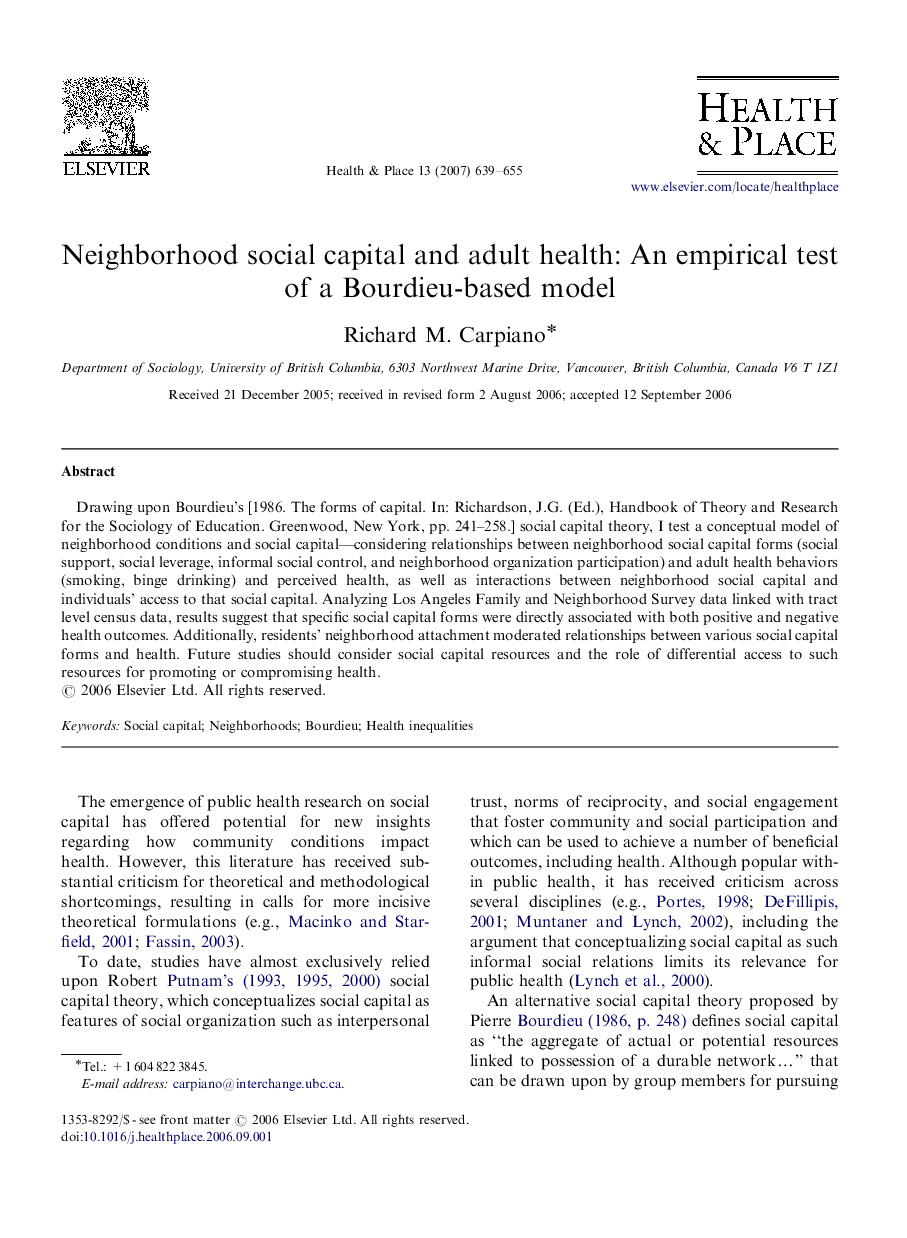| Article ID | Journal | Published Year | Pages | File Type |
|---|---|---|---|---|
| 1048810 | Health & Place | 2007 | 17 Pages |
Drawing upon Bourdieu's [1986. The forms of capital. In: Richardson, J.G. (Ed.), Handbook of Theory and Research for the Sociology of Education. Greenwood, New York, pp. 241–258.] social capital theory, I test a conceptual model of neighborhood conditions and social capital—considering relationships between neighborhood social capital forms (social support, social leverage, informal social control, and neighborhood organization participation) and adult health behaviors (smoking, binge drinking) and perceived health, as well as interactions between neighborhood social capital and individuals’ access to that social capital. Analyzing Los Angeles Family and Neighborhood Survey data linked with tract level census data, results suggest that specific social capital forms were directly associated with both positive and negative health outcomes. Additionally, residents’ neighborhood attachment moderated relationships between various social capital forms and health. Future studies should consider social capital resources and the role of differential access to such resources for promoting or compromising health.
